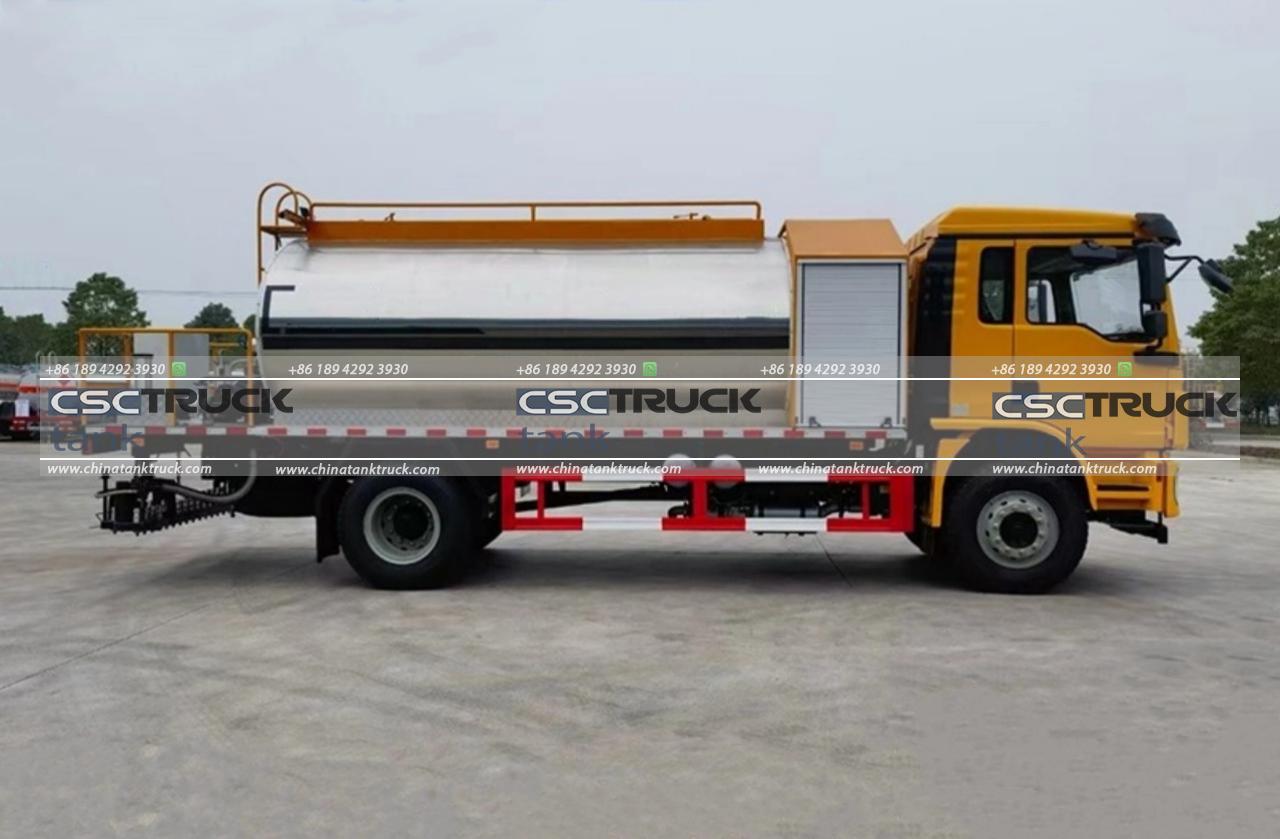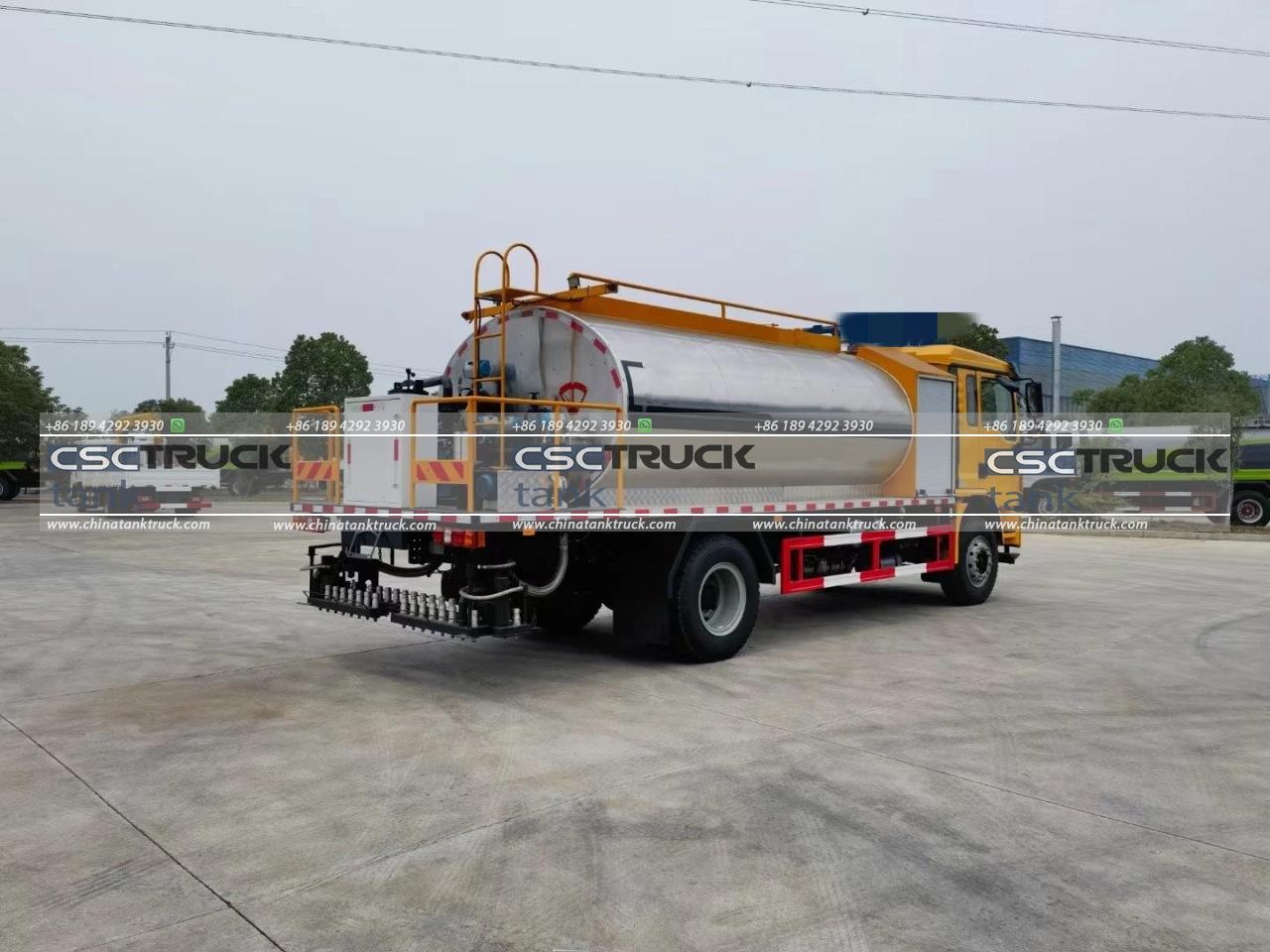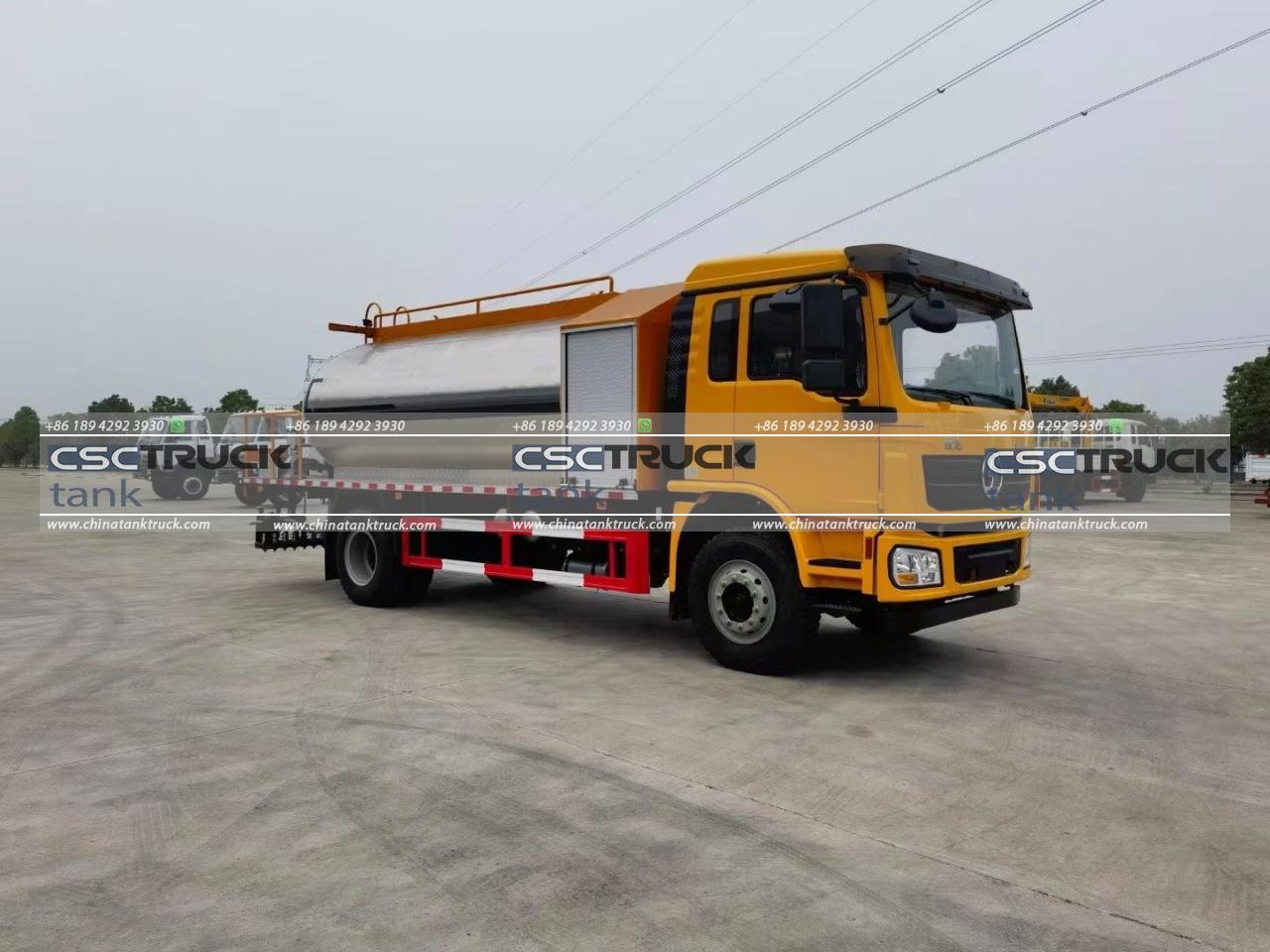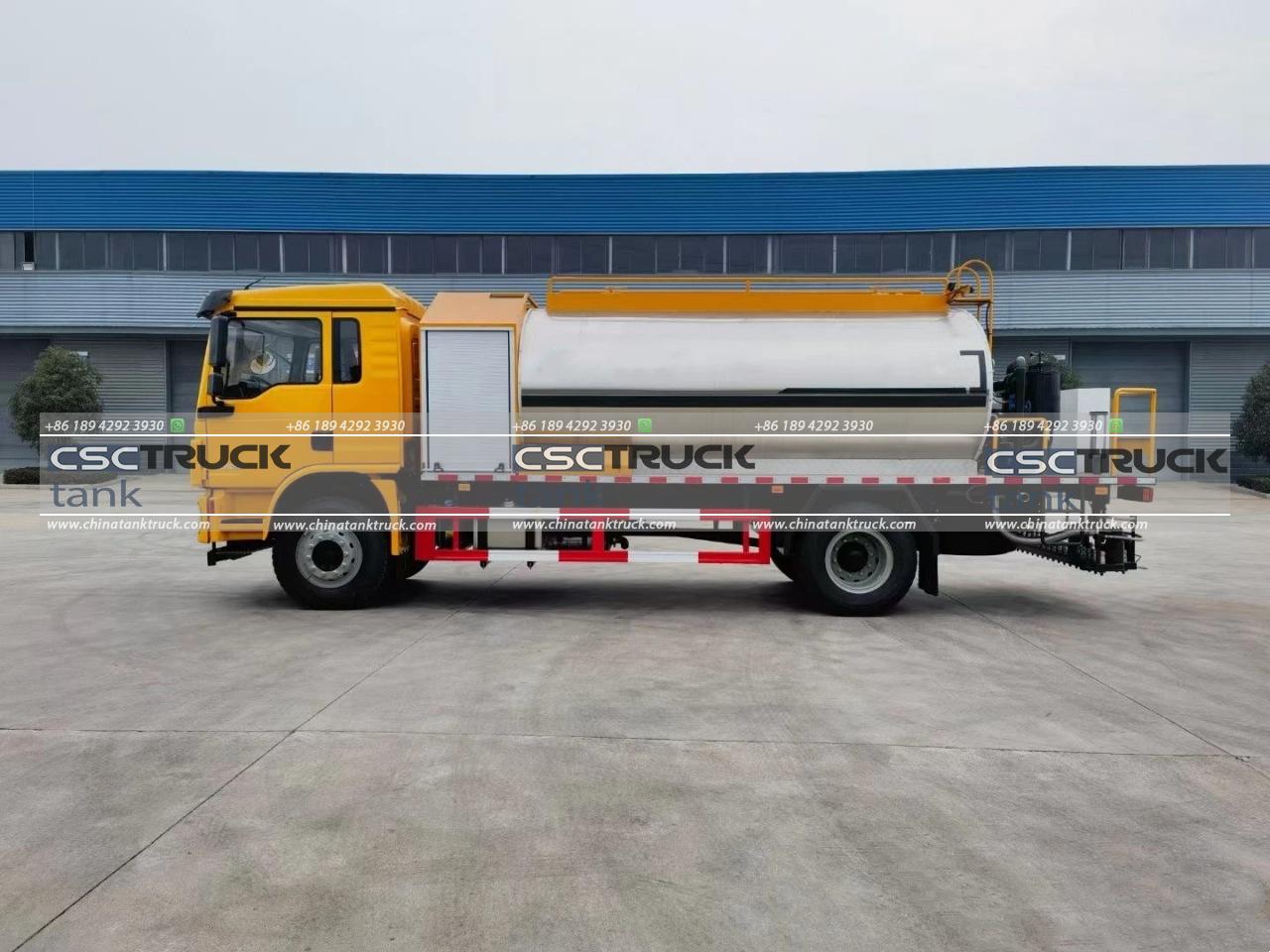Asphalt Tank Trucks: Reliable Transportation for Hot and Cold Asphalt
Asphalt, a crucial element in paving roads, highways, and other infrastructure projects, requires reliable transport solutions to maintain its quality and workability from production to application. Asphalt tank trucks, designed specifically for the transportation of both hot and cold asphalt, play an essential role in the construction and road maintenance industry. These specialized trucks come equipped with features and technologies that ensure asphalt remains at the right temperature, viscosity, and quality throughout the journey. Here’s a closer look at the role, construction, types, and innovations in asphalt tank trucks that contribute to their reliability and effectiveness.
Understanding Asphalt Transportation Requirements
Asphalt is primarily used in 2 forms: hot mix asphalt (HMA) and cold mix asphalt. Each type has distinct transportation needs:
1. Hot Mix Asphalt (HMA): Hot asphalt is manufactured at high temperatures (between 300 and 350°F or 150-175°C). Transporting it at these temperatures is essential to prevent it from solidifying. Hot asphalt is highly sensitive to temperature loss, which can make it harden, compromising the material’s ability to adhere properly.
2. Cold Mix Asphalt: Cold asphalt mix doesn’t require the same high temperatures as hot asphalt. It’s prepared at ambient temperatures using a cutback asphalt mixture or emulsions. Cold mix asphalt doesn’t harden as quickly as HMA, which makes it suitable for temporary repairs or in climates where high temperatures are not feasible. Despite the lower thermal requirements, maintaining a stable temperature and preventing contamination are still important considerations.

Key Components of Asphalt Tank Trucks
To meet the unique requirements of asphalt transportation, asphalt tank trucks come equipped with specialized components. Here’s a breakdown of the critical components that make these trucks effective and reliable:
1. Insulated Tank: The tank on an asphalt truck is typically insulated with materials such as fiberglass or polyurethane to maintain the temperature of hot asphalt and to protect cold asphalt from external temperature fluctuations. This insulation reduces the amount of heating needed, especially during longer hauls.
2. Heating System: Most asphalt tank trucks transporting hot asphalt come with a heating system, which can be powered by propane, diesel, or electric sources. These heating systems are crucial to ensure that the temperature of the asphalt doesn’t fall below the threshold that would make it difficult to work with. A well-maintained heating system can prevent material waste and ensure proper application.
3. Agitators and Stirring Mechanisms: Some asphalt tank trucks include agitators to keep the asphalt in motion and prevent it from settling. This is especially important for asphalt emulsions, where consistent mixing helps maintain material integrity.
4. Pumping and Spray System: Asphalt tank trucks often feature advanced pumping systems that enable the rapid loading and unloading of the material. In addition, spray bars and nozzles help distribute the asphalt evenly when applied directly from the truck.
5. Temperature Monitoring Equipment: Precise temperature control is essential for asphalt transport. Built-in thermometers and digital monitoring systems allow operators to track and adjust the asphalt’s temperature throughout transit, ensuring it remains within the optimal range.
Types of Asphalt Tank Trucks
The type of asphalt tank truck chosen for a specific job depends on the type of asphalt being transported, distance, and road conditions. Here are the primary types of asphalt tank trucks:
1. Single-Compartment Asphalt Tankers: These are commonly used for carrying a single type of asphalt at a time, whether hot or cold. They are standard for most road construction projects due to their straightforward design, ease of maintenance, and reliability in transporting large quantities.
2. Multi-Compartment Asphalt Tankers: Designed to transport different asphalt types in one trip, multi-compartment tankers offer flexibility and efficiency, especially in cases where different grades or formulations are needed at the same site. Each compartment has its heating and insulation system, allowing for temperature control of each section independently.
3. Articulated Asphalt Tankers: These are designed for improved maneuverability and are often used in areas with narrow roads or uneven terrain. The articulated design allows for easier navigation in challenging environments while ensuring asphalt temperature and consistency.
4. Trailer-Type Asphalt Tank Trucks: Often seen in long-haul operations, trailer-type asphalt tank trucks have larger storage capacities than regular trucks. These trucks are ideal for long-distance transport, where maintaining asphalt quality over several hours is critical.

Ensuring Safety and Efficiency in Asphalt Transport
Asphalt tank trucks play an essential role in maintaining safety standards in the transportation of hot and cold asphalt. Here are several measures taken to ensure both safety and efficiency:
1. Spill Prevention: Asphalt is a hazardous material, so asphalt tank trucks are equipped with spill prevention measures, such as closed loading systems and spill-proof valves. These features help prevent environmental contamination and reduce cleanup costs.
2. Temperature Monitoring and Control: Constant temperature monitoring is critical for safe asphalt transport. Many trucks are now equipped with digital temperature monitoring systems, allowing drivers to keep an eye on the temperature in real time. If a problem arises, drivers can adjust the heating system to maintain optimal conditions.
3. Driver Training and Safety Protocols: Operating an asphalt tank truck requires specialized training. Drivers learn about heating systems, temperature monitoring, and emergency protocols to prevent accidents. Companies invest in regular safety training to keep drivers updated on best practices and technological advances.
4. Compliance with Environmental Regulations: Many countries have stringent environmental regulations concerning asphalt transportation due to the potential environmental risks. Modern asphalt tank trucks are designed to minimize emissions, prevent leaks, and reduce the impact of asphalt on the environment.
Innovations in Asphalt Tank Truck Technology
Asphalt transportation is evolving with advancements in materials science and technology. Some notable innovations include:
1. Enhanced Insulation Materials: Newer insulation materials, such as aerogels, offer higher thermal efficiency with less bulk, making it easier to maintain temperatures in a variety of climates.
2. Automated Temperature Control Systems: Today’s asphalt tank trucks increasingly feature automated temperature control systems that adjust heating based on ambient conditions, distance, and road conditions. This automation helps improve fuel efficiency and reduces the likelihood of human error.
3. Eco-Friendly Fuels and Emissions Control: Asphalt tank trucks are increasingly powered by eco-friendly fuels and come equipped with emissions control systems that meet international environmental standards. This helps reduce the carbon footprint associated with asphalt transportation.
4. GPS and Telematics Integration: With GPS and telematics, companies can track their trucks in real-time, monitor temperature and other parameters, and schedule maintenance more effectively. This technology reduces delays, helps ensure asphalt quality, and optimizes logistics.
5. Self-Cleaning Mechanisms: Cleaning asphalt tank trucks is a time-consuming process, but innovations in self-cleaning systems allow the tanks to be cleaned with minimal human intervention, thus reducing downtime and contamination risk between loads.

The Future of Asphalt Tank Trucks
The evolution of asphalt tank trucks is set to continue as construction companies seek greater efficiency, safety, and sustainability in their operations. Future asphalt tank trucks will likely incorporate more advanced IoT (Internet of Things) connectivity, allowing companies to monitor and adjust all aspects of the transportation process remotely. This connectivity will improve predictive maintenance, reduce costs, and help companies stay ahead of regulatory changes. Moreover, electric or hybrid asphalt tank trucks could become a reality as the demand for low-emission vehicles increases.
Conclusion
Asphalt tank trucks are indispensable in modern construction and road maintenance. Designed to transport both hot and cold asphalt with precision and reliability, these trucks incorporate specialized features that meet the unique demands of asphalt transportation. From insulation and heating systems to advanced temperature monitoring and eco-friendly innovations, asphalt tank trucks are integral to ensuring that asphalt arrives at the job site in optimal condition. As technology advances, the asphalt transportation industry will continue to see innovations that enhance safety, efficiency, and sustainability, paving the way for a smoother, more reliable journey from production to application.


